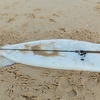
The 17 Absolute Best Moments From #CephalopodWeek
A few weeks back was Cephalopod week - a celebration of all things squid and octopus and cuttlefish! In case you missed it, here are the 17 best moments from Cephalopod Week.



A few weeks back was Cephalopod week - a celebration of all things squid and octopus and cuttlefish! In case you missed it, here are the 17 best moments from Cephalopod Week.
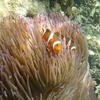
In a good news story for the Great Barrier Reef, some corals seem to be able to pass on heat-tolerant genes, writes Australian Geographic. Read the full story here.
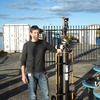
A fleet of floating bio-robots will be deployed between Christmas Island and Madagascar next week to help gain an understanding of the physical and biological workings of the crucially important Indian Ocean. Read the full story here.
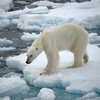
A study released Monday in Nature Climate Change is drawing attention to yet another ice-related problem — one that could cause some large-scale consequences, writes the Washington Post. According to the study, retreating sea ice could disrupt a major ocean circulation pattern and even affect climate patterns in Europe. Read the full story here.
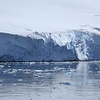
Phys Org writes: Antarctic fish are a vital component to the food web that sustains life in the cold Southern Ocean that surrounds Antarctica. They feed on smaller organisms, and serve as meals for the bigger ones. But little is known about how the rapid rate at which these waters are warming will affect the development of fish embryos and their growth after hatching, according to Northeastern professor William Detrich. …

The Redmap website and app will be down for 24 hours this Saturday for maintenance. Apologies for any inconvenience - we'll be back on Sunday after 6am!
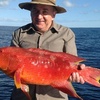
In 2015, mankind will take about one trillion photos. Up until 2010, 3.8 trillion photos had been taken. If taking photos solved climate change, 2015 would cause the earth’s climate to be cesspool-level stagnant, writes Discover Magazine Online. As we know, taking photographs does not solve climate change — If only. Still, citizen science projects like RedMap use photography to collect data on our changing environment. Read the full …

It's depressing news for fish lovers but a new study has found dwindling fish stocks will mean consumption patterns will have to dramatically change within a decade, writes ABC Radio. The University of Tasmania research found nations and industries are competing for fish and it will soon no longer be viable to use the resource for both food and products like fertiliser. Read the full story and listen to the …
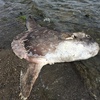
IT might not be the most beautiful thing a person could find on Maria Island, but this ocean sunfish is certainly unusual and unexpected, writes The Mercury. Read the full story here.
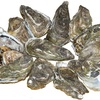
Researchers from the University of Technology Sydney (UTS) and the New South Wales Government found warmer oceans could affect the way shellfish take up naturally occurring paralytic shellfish toxins, which are produced by certain species of microalgae, writes ABC News. Read the full ABC story here.